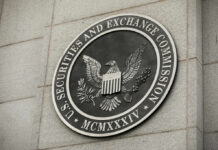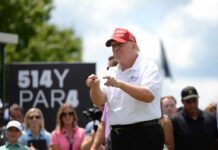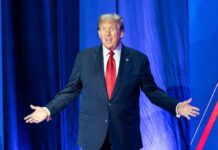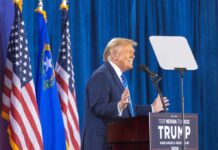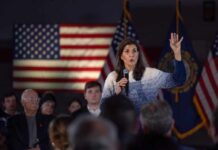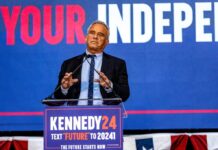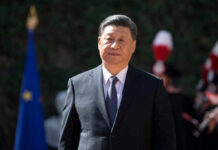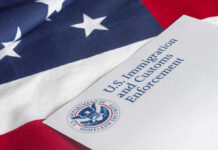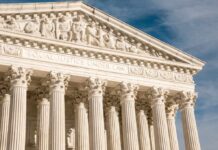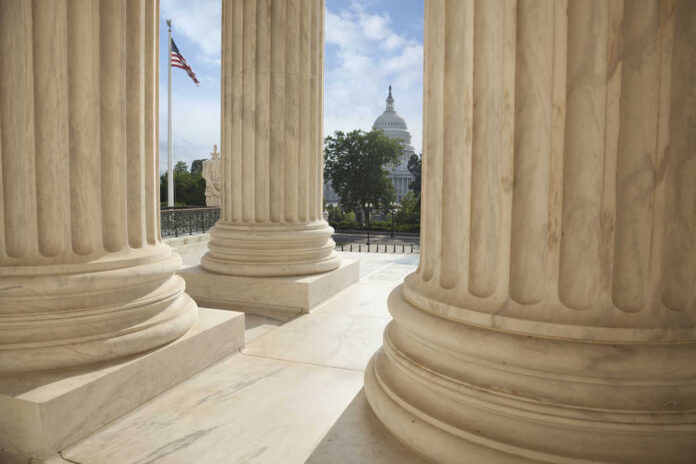
Supreme Court Marshal Gail Curley, who was in charge of the investigation into the leaking of an early draft opinion in the case overturning Roe v. Wade, revealed in a statement on Friday that she had not asked Supreme Court justices to sign sworn affidavits during the investigation.
In May 2022, roughly one month before the ruling on Dobbs v. Jackson Women’s Health Organization was released, Politico published the draft — which revealed that the Supreme Court was poised to overturn Roe. The leak was shocking to many Americans, especially because it was the first Supreme Court leak in modern history.
One day after the leak, Chief Justice John Roberts assigned Curley to conduct an investigation. The results of that investigation were concerning, as the marshal’s report stated that the probe failed to identify who was responsible for the leak.
The report noted that “all personnel who had access to the draft opinion signed sworn affidavits affirming they did not disclose the draft opinion nor know anything about who did.”
“A few of those interviewed admitted to telling their spouses about the draft opinion or vote count, so they annotated their affidavits to that effect,” the report read.
“At this time, based on a preponderance of the evidence standard, it is not possible to determine the identity of any individual who may have disclosed the document or how the draft opinion ended up with Politico,” the report continued. “While investigators and the Court’s IT experts cannot absolutely rule out a hack, the evidence to date reveals no suggestion of improper outside access. Investigators also cannot eliminate the possibility that the draft opinion was inadvertently or negligently disclosed – for example, by being left in a public space either inside or outside the building.”
A statement released by Curley on Friday provided further context on the investigation — revealing that, while she did interview Supreme Court employees and require them to sign sworn affidavits, she simply “spoke with” the Justices and did not require them to sign any affidavits.
“During the course of the investigation, I spoke with each of the Justices, several on multiple occasions. The Justices actively cooperated in this iterative process, asking questions and answering mine. I followed up on all credible leads, none of which implicated the Justices or their spouses. On this basis, I did not believe that it was necessary to ask the Justices to sign sworn affidavits,” Curley wrote in the statement.
Many critics were already angered over the failed investigation and became even more frustrated over the news that Curley had failed to pursue every lead, including the potential that one of the Justices was involved.
Mark Joseph Stern, a senior writer at Slate, suggested in a tweet that the marshal had not put forth an adequate explanation as to why she chose not to ask the Justices to sign sworn affidavits.
“If the marshal was so certain the justices weren’t involved with the leak, she could’ve simply asked them to sign a sworn affidavit saying so, just like everyone else. It would not have been difficult. If she has a good reason for refusing to do so, she has not provided it!” Stern wrote.
If the marshal was so certain the justices weren't involved with the leak, she could've simply asked them to sign a sworn affidavit saying so, just like everyone else. It would not have been difficult. If she has a good reason for refusing to do so, she has not provided it!
— Mark Joseph Stern (@mjs_DC) January 20, 2023
Steven Mazie, who covers the Supreme Court for the Economist, pointed out the confusing logic behind Curley’s rationale for not treating the Justices the same as their employees during the investigation.
“The logic is odd: Curley says she saw no reason to ask the Justices to sign affidavits because there were no credible leads implicating the Justices or their spouses. Were there credible leads implicating all of the Court employees who *were* asked to sign affidavits?” Mazie tweeted.
The logic is odd: Curley says she saw no reason to ask the Justices to sign affidavits because there were no credible leads implicating the Justices or their spouses.
Were there credible leads implicating all of the Court employees who *were* asked to sign affidavits?
— Steven Mazie (@stevenmazie) January 20, 2023
In a tweet, SCOTUSblog editor James Romoser noted the differences between Curley’s language regarding the Justices versus the court staff.
“Note Curley’s use of the phrase ‘spoke with.’ Her report, in contrast, repeatedly used the terms ‘interview’ and ‘formal interview’ to describe her questioning of court staff. Not using those terms here suggests that her conversations with the justices were much more informal,” he wrote.
That Curley "spoke with" the justices "during" the investigation is unsurprising. But this statement strengthens the inference that the investigators did not scrutinize the justices at the same level as they scrutinized everyone else with access to the draft.
— James Romoser (@jamesromoser) January 20, 2023





